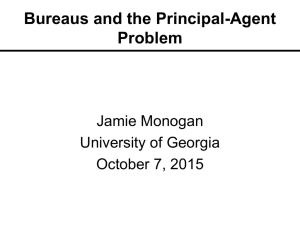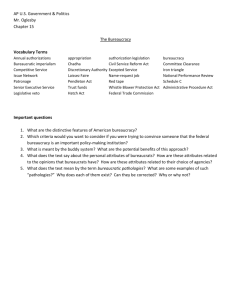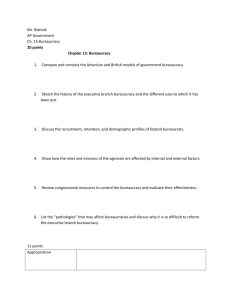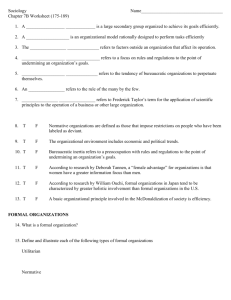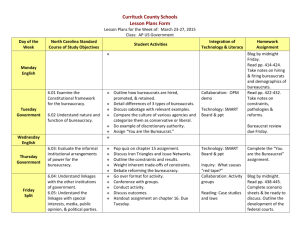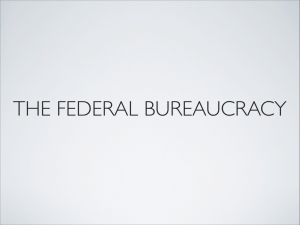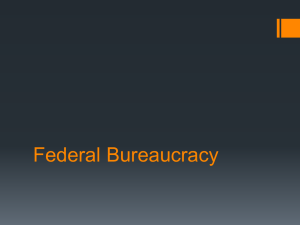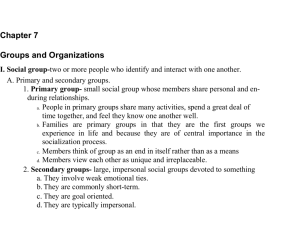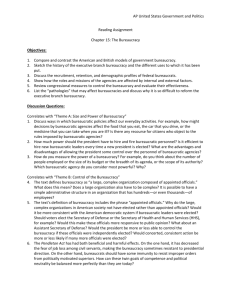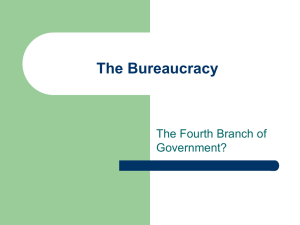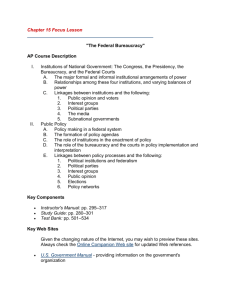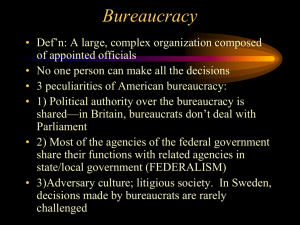FEDERALISM - University of Georgia
advertisement
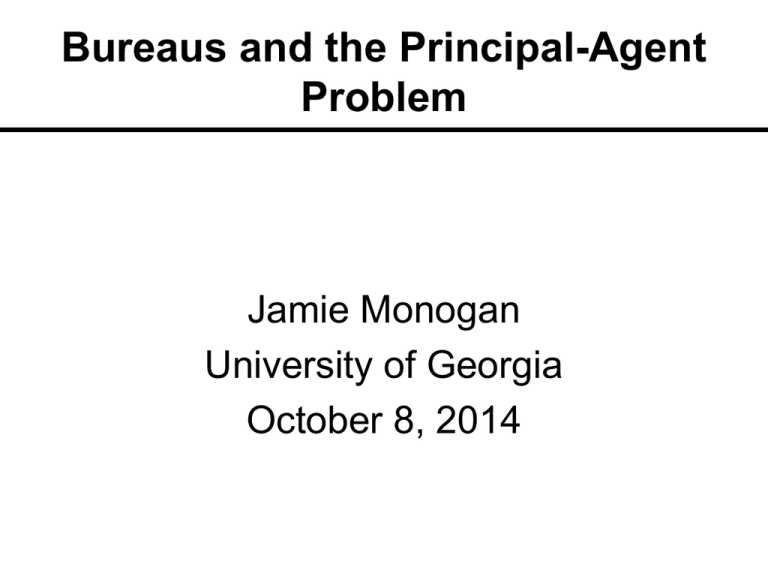
Bureaus and the Principal-Agent Problem Jamie Monogan University of Georgia October 8, 2014 Objectives By the end of this meeting, participants should be able to: • Describe the principal-agent problem and apply it to understanding bureaucratic governance. • Explain mechanisms elected officials use to control the bureaucracy. Principals and Agents in the Executive Bureaucracy • Elected officials (Congress and the president) are principals; bureaucrats are agents • Two primary principal-agent problems in bureaucracy: – Agencies tend to drift from their defined missions – Conflicting motivations of bureaucrats and elected officials Bureaucratic Drift and Coalitional Drift Bureaucratic Capture • Agencies can also be influenced by organizations/corporations • Often these are the very industries they are trying to regulate • Agencies may care more about the industries than the principals they work for Motivations of Bureaucrats • Bureaucrats want autonomy and resources • Build coalitions to help bring about policy change • Possess information and expertise Bureaucrats as Lawmakers • Administrative law is made within the executive bureaucracy • Chevron v. Natural Resources Defense Council (1984) – Established legal standard for upholding an agency’s authority to write law in a specific area Political Influences on the Bureaucracy • Presidents appoint the top positions at almost all executive branch agencies – More difficult to get appointments through under divided government • Congress appropriates money for the bureaucracy CONCEPT MAP Sources of Presidential Congressional Influence Influence •Use power •Appoint andofremove the purse agency to grant leadership and restrict agency funding •Instructlegislation •Create agencies on thatinterpretation describes what andthe implementation agency should of do, lawsand through also expand signingor statements limit and other agency jurisdiction directives •Hold congressional hearings to oversee agency action and to limit bureaucratic drift Political Influences on the Bureaucracy: Oversight • Fire-alarm oversight – Administrative Procedures Act of 1946 established guidelines – Freedom of Information Act of 1966 requires disclosure of information – Sunshine Act of 1976 requires open meetings • Police-patrol oversight – Congress routinely inspects agencies Political Influences on the Bureaucracy: Interest Groups • Interest groups lobby agencies – Influence those writing administrative laws – Complain when their interests are threatened • The iron triangle – Includes interest groups, congressional committees, and bureaucratic agencies An Iron Triangle Assignments • For Friday: Read Bullock & Gaddie, Chapter 14 • For Monday: Read Kollman pp. 263-280 – Note that October 13, 15, and 20 have been shuffled. – October 20: Guest speaker, Prof. Randy Beck • October 15: Chapter 8 Concept Map due
